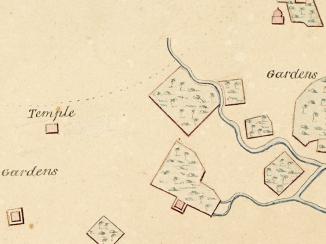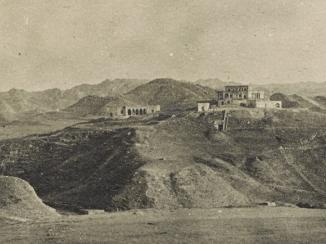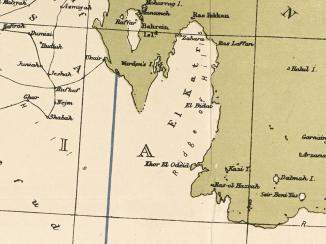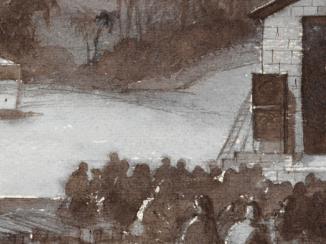Overview
By offering military protection to the ruler of Qatar, Shaikh Abdullāh bin Jāsim Āl Thānī, the British government helped to ensure that the Qatar Oil Concession was granted in 1935 to the British Anglo-Persian Oil Company. Who or what did Qatar need protection from?
Regional and International Concerns
Qatar’s desire to secure military protection was understandable in the context of the international political situation, too, especially just a few months after Germany announced its rearmament, in violation of the Treaty of Versailles.
The most prominent threat came from the newly established Kingdom of Saudi Arabia – under Ibn Sa’ud – on its southern and maritime borders as well as from eventual ‘serious’ incursions by other regional powers.
At the same time, Britain was starting a programme of rearmament, including acquiring new battleships and providing modern monoplanes to the RAF. It was essential that they ensure there was enough fuel to power the new fleets in case of a new war against Germany. Access to the Qatari oil supply would be vital if it were made possible.
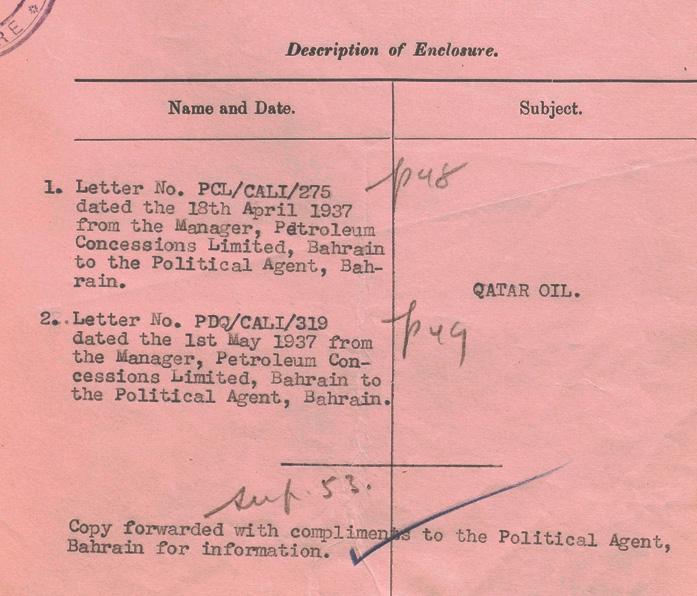
The Shaikh’s Request and Britain’s Implicit Protection
In May 1935 the Sheikh himself expressed the wish to purchase armaments such as machine guns, rifles and armoured cars for protection, so he sought British advice. From the range of correspondence on the subject, of particular interest are some letters exchanged between the Political Resident A senior ranking political representative (equivalent to a Consul General) from the diplomatic corps of the Government of India or one of its subordinate provincial governments, in charge of a Political Residency. in Bushire, Lt-Col Trenchard Craven Fowle and the Secretary of State for India at the time, Sir Samuel Hoare.
Hoare was in favour of the Shaikh purchasing rifles but against the idea of supplying him with machine guns and armoured cars because of what he described as the ‘[unfailingly] provocative effect on Ibn Saud and because of uncertainty as to [the] capacity of [the] Sheikhdom to produce people competent to use them or even prevent their falling into enemy hands’. Clearly, the British were concerned with maintaining political equilibrium in the region, as well as ensuring that no weapons could fall into the wrong hands.
Hoare continued: ‘You [Fowle] should reply that His Majesty’s Government have no reason to anticipate a situation in which possession of either machine guns or armoured cars would be necessary’. The reason for this was implicit: the British Government itself was committed to help the Shaikh in case of emergency.

The Political Resident A senior ranking political representative (equivalent to a Consul General) from the diplomatic corps of the Government of India or one of its subordinate provincial governments, in charge of a Political Residency. was of a different mind, mainly for military reasons. He responded that the ‘Shaikh of Qatar [should] be permitted to purchase [a] couple of similar cars with machine guns. These would be of use to the Royal Air Force in case of emergency’. He also suggested that ‘some of the Sheikh’s men could be trained in machine gunning as were [the] Sheikh of Kuwait’s’.
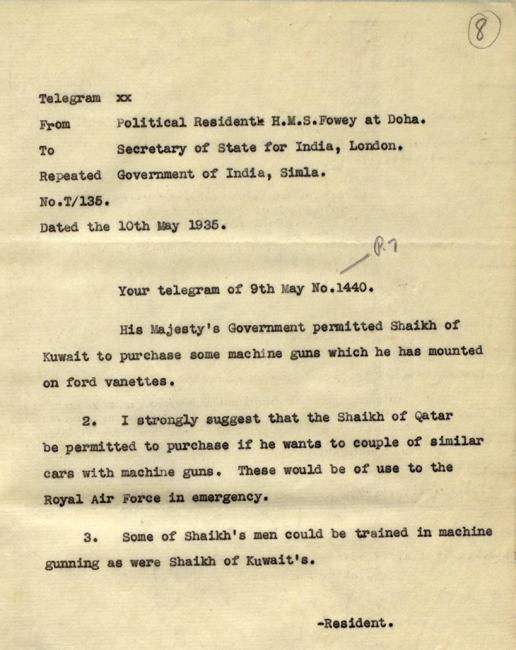
But the ‘cars with machine guns’ were never purchased. The British need for oil in the case of war was addressed by a clause inserted into the Qatar Oil Concession, which was agreed between A.P.O.C. and the Shaikh in 1935: the clause allowed ‘for pre-emption of oil in case of national emergency or war’. This pre-emption was to be determined ‘solely by His Majesty’s Government’. Although the Concession was signed between A.P.O.C. and the Shaikh, this clause in effect ensured that neither party would be able to exert full control over the oil supply in the event of war.



